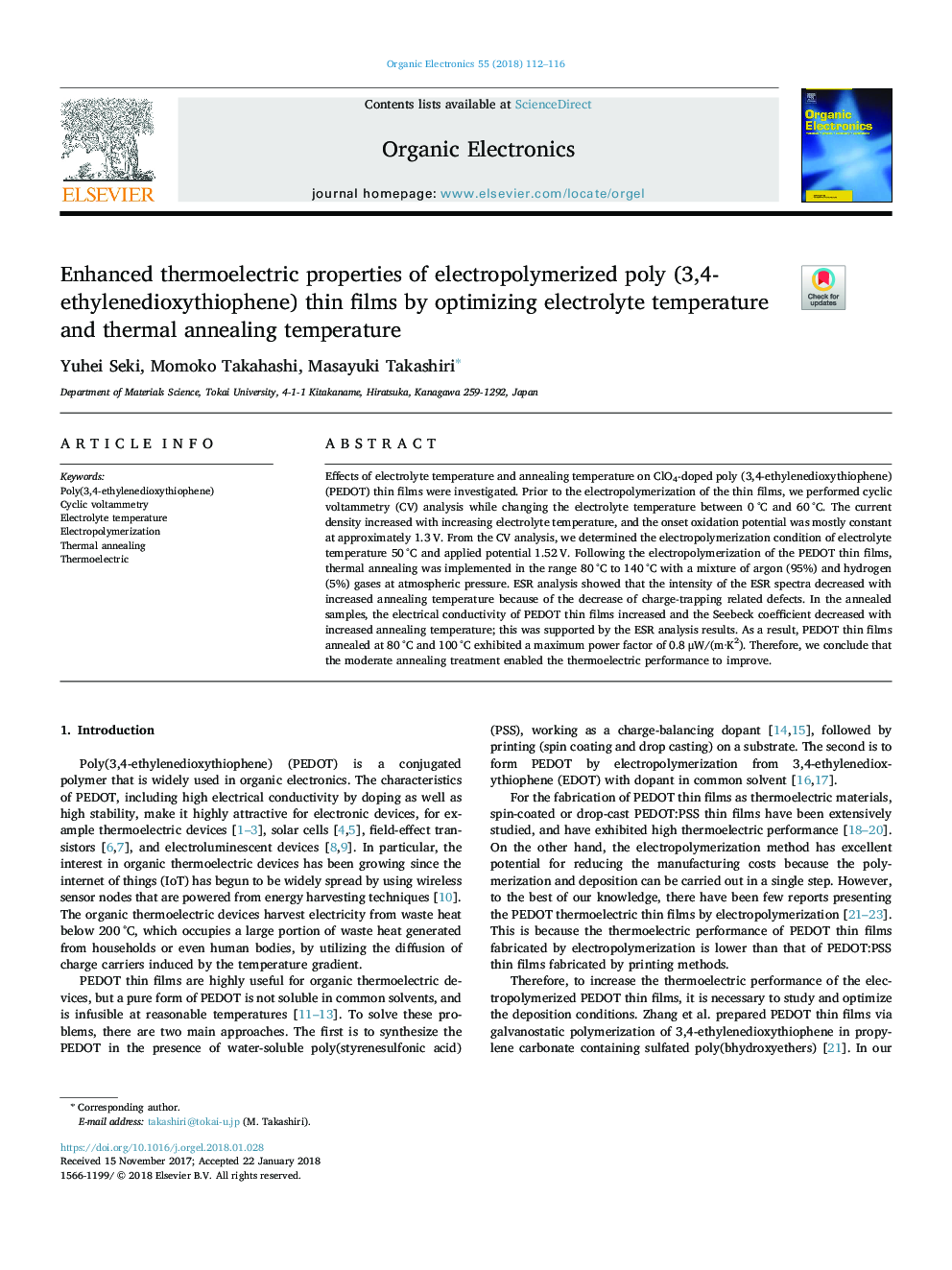| Article ID | Journal | Published Year | Pages | File Type |
|---|---|---|---|---|
| 7700409 | Organic Electronics | 2018 | 5 Pages |
Abstract
Effects of electrolyte temperature and annealing temperature on ClO4-doped poly (3,4-ethylenedioxythiophene) (PEDOT) thin films were investigated. Prior to the electropolymerization of the thin films, we performed cyclic voltammetry (CV) analysis while changing the electrolyte temperature between 0â¯Â°C and 60â¯Â°C. The current density increased with increasing electrolyte temperature, and the onset oxidation potential was mostly constant at approximately 1.3â¯V. From the CV analysis, we determined the electropolymerization condition of electrolyte temperature 50â¯Â°C and applied potential 1.52â¯V. Following the electropolymerization of the PEDOT thin films, thermal annealing was implemented in the range 80â¯Â°C to 140â¯Â°C with a mixture of argon (95%) and hydrogen (5%) gases at atmospheric pressure. ESR analysis showed that the intensity of the ESR spectra decreased with increased annealing temperature because of the decrease of charge-trapping related defects. In the annealed samples, the electrical conductivity of PEDOT thin films increased and the Seebeck coefficient decreased with increased annealing temperature; this was supported by the ESR analysis results. As a result, PEDOT thin films annealed at 80â¯Â°C and 100â¯Â°C exhibited a maximum power factor of 0.8â¯Î¼W/(m·K2). Therefore, we conclude that the moderate annealing treatment enabled the thermoelectric performance to improve.
Keywords
Related Topics
Physical Sciences and Engineering
Chemistry
Chemistry (General)
Authors
Yuhei Seki, Momoko Takahashi, Masayuki Takashiri,
